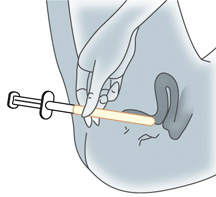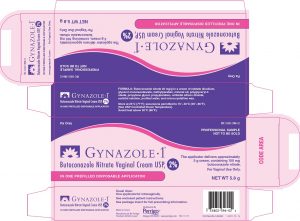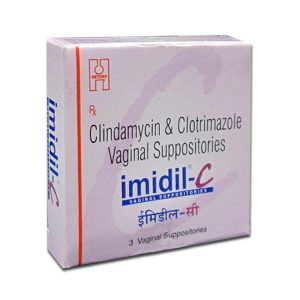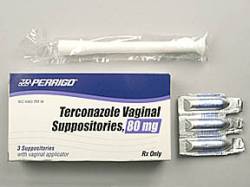Contents
- What are Vaginal Suppositories?
- What is the use of Vaginal Suppositories?
- Vaginal Suppositories for yeast infection: facts
- What are different types of Vaginal Suppositories for yeast infection?
- How to use Vaginal Suppositories?
- What special precautions should I follow while using Vaginal Suppositories?
- What are the side effects of Vaginal Suppositories?
- What are the disadvantages of Vaginal Suppositories?
What are Vaginal Suppositories?
Vaginal suppositories are generally small pellets of the medications that are inserted into the vagina for treatment of a infection or a diseased state.
After insertion with the help of an applicator, vaginal suppositories get dissolved (due to the favourable body temperature) and get distributed to the vaginal tissue.
Vaginal administration of drugs usually provide several advantages over the conventional drugs such as less drug use, retrival of dose, low degradation and long term drug exposure and absorption. The vaginal suppositories weigh between 3-5 gm and are of various shapes such as globular, oviform, or cone-shaped.
What is the use of Vaginal Suppositories?
Vaginal suppositories are often used as a delivery system for vaginal moisturizers, hormones spermicide, and drugs employed for a variety of conditions including:
- Contraception
- Restoration of vaginal mucosa
- Management of bacterial infections
- Treatment of fungal infection (most commonly yeast)
- Treatment of protozoan infection
Vaginal Suppositories for yeast infection: facts
- Yeast infection represents one of the common types of vaginal infection and also known as Monilial vaginitis or Vaginal candidiasis.
- Yeast infection is also caused by Candida albicans.
- Vaginal yeast infections are often treated by vaginal creams, tablets or vaginal suppositories.
- Vaginal suppositories for yeast infection offer advantages over other means as they are less messy, less likely to leak and used for fewer days.
- Vaginal suppositories for yeast infection are often oval shaped and also known as ovules.
- These contain medications for the treatment of vaginal yeast infection.
- The suppositories are inserted into the vagina (with the help of plastic inserter) which later gets dissolved with time.
- Vaginal Suppositories usually protects from yeast infection from 3-7 days.
What are different types of Vaginal Suppositories for yeast infection?
There are different types of Vaginal Suppositories for yeast infection depending upon the type of medication they contain. These include:
- Butoconazole (Gynazole-1) suppositories:
- Butoconazole suppositories mainly contain Butoconazole nitrate as an active drug.
- The drug belongs to the category of an azole antifungal medication that works by inhibiting the growth of yeast responsible for causing the infection.
- Butoconazole suppositories are used for reducing burning sensation in the vagina, vaginal itching as well as vaginal discharge often accompanying this state.
- Clotrimazole (Gyne-Lotrimin) suppositories:
- Clotrimazole suppositories contain Clotrimazole medication as active ingredients.
- The drug Clotrimazole is an anti fungal agent that primarily used for the treatment of vaginal infections caused by yeast.
- These suppositories often decrease the vaginal burning, vaginal itching and vaginal discharge.
- Clotrimazole suppositories also belong to class of azole antifungal drugs. The mode of their action involves preventing the growth of fungus (yeast) that results in infection.
- Miconazole (Monistat 3) suppositories:
- Miconazole suppositories contain Miconazole as an active ingredient.
- Miconazole is a antifungal drugs or agent that are employed for overcoming vaginal infections by yeast.
- Miconazole suppositories put forth their effect by acting on fungal cell membrane, weakening it and causing death of the infectious fungus.
- Terconazole (Terazol 3) suppositories:
- Terconazole suppositories contain Terconazole as an active ingredient.
- Terconazole is an broad-spectrum triazole ketal class of antifungal/antimycotic medication.
- Terconazole suppositories play important role in curing vaginal infections caused by yeast in case of women. Terconazole acts through causing death of the yeast causing infection via weakening its membrane.
Some of these suppositors are available only upon prescription by a doctor while others are available as over-the-counter medications. Over-the-counter antifungal vaginal suppositories are effective for a large population of women, and are safe during pregnancy.
What is the mode of action of Vaginal Suppositories for yeast infection?
The Vaginal Suppositories for yeast infection usually work by either of the following means:
- Stopping the growth of the fungus responsible for infection
- Killing sensitive bacteria responsible for infection via weakening its cell membrane
How to use Vaginal Suppositories?
It is always recommended to use the Vaginal Suppositories as directed by your doctor. Dosing should be done depending upon the instructions as mentioned on the medicine’s label.
- Read the patient leaflet available with Vaginal Suppositories before use. In case of any query, talk to your doctor or pharmacist.
- It is suggested to use the Vaginal Suppositories just before the bedtime in a lying down position to prevent the leakage from the vagina.
- Wash the vaginal area with the help of mild soap and water (before inserting the suppository) and dry it.
- Remove the suppository from the plastic covering and place the flat end of suppository into end of applicator provided with the suppository.
- Gently insert the suppository into the vagina until reaching the area upto which it comfortably goes, in either of the following positions:
- Standing position with feet apart and knees bent.
- Lying on the back with knees drawn up towards chest or knees bent and legs apart.
- Press the plunger of the suppository in order to release the suppository into the vagina. After this, take out the applicator.
- It is recommended to clean the applicator after each use by pulling apart the two pieces and washing with mild soap and lukewarm water.
- Wash your hands with soap and warm water immediately after the use of suppository.
- The Vaginal Suppositories work best when used at the same time each day and for the recommended period.
- If case of missed a dose, use the suppository as soon as possible. Avoid the use if it is the time for the next dose and then follow the regular schedule. Never double the dose of the suppository in order to make up the missed dose.
What special precautions should I follow while using Vaginal Suppositories?
It is always recommended to take special precautionary measures during the use of Vaginal suppositories.
- Discuss with your doctor and pharmacist about any anaphylactic reactions you face during the use of a particular drug, food and other substances.
- Bring it to the notice of the doctor and pharmacist about the prescription and nonprescription medications you are taking.
- Extra care should be taken in case of use of antibiotics and dietary supplements.
- Inform your doctor if case you are pregnant, or plan to become pregnant. Call your doctor right away if you become pregnant during the use of Vaginal Suppository.
- It is also necessary to discuss with your doctor in case you are breast feeding.
- Discuss with your doctor in case of any problem with your immune system.
What are the side effects of Vaginal Suppositories?
Use of Vaginal Suppositories may be associated with side effects. Some people may show none to minor side effects while others may show common to severe side effects. It is recommended to consult with your doctor if the side effects persist for a longer time or become bothersome.
The common side effects include:
- Stomach cramps
- Headache
- Mild vaginal burning
- Irritation
- Itching
The severe side effects include the following:
- Allergic reactions (including body rash, painful breathing, chest tightness, hives, swelling of the body parts such as face, lips, mouth, or tongue)
- Fever
- Stomach pain
- Smelly vaginal discharge
- Body chills
- Vaginal irritation, burning, or itching
- Nausea
- Vomiting
Besides the above mentioned side effects, some other side effects may also occur during the use of Vaginal Suppositories.
What are the disadvantages of Vaginal Suppositories?
Vaginal suppositories are associated with a number of disadvantages which are as follows:
- Difficult manufacturing process
- High manufacturing cost
- Mucous membrane irritation
- Undesired absorption
- Patient compliance
- Storage
- Liquefication of the bases
- Leakage problem





